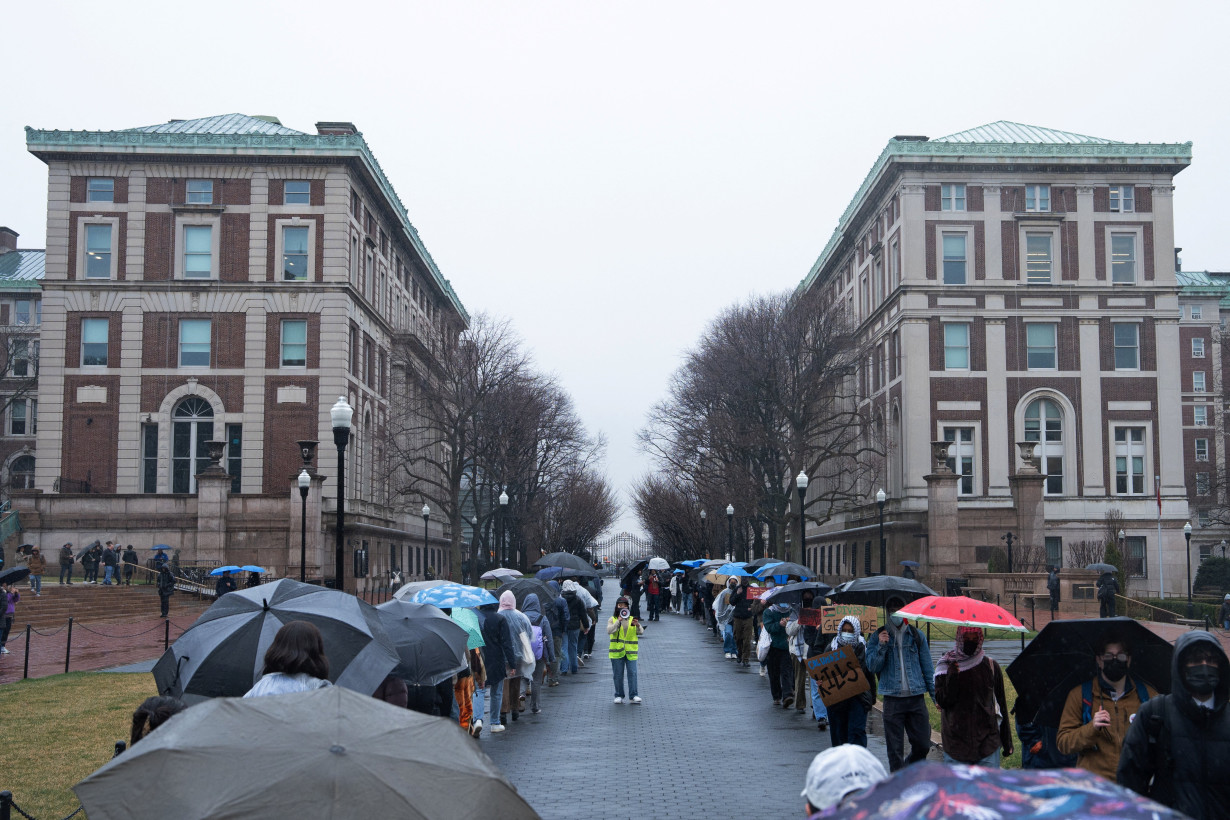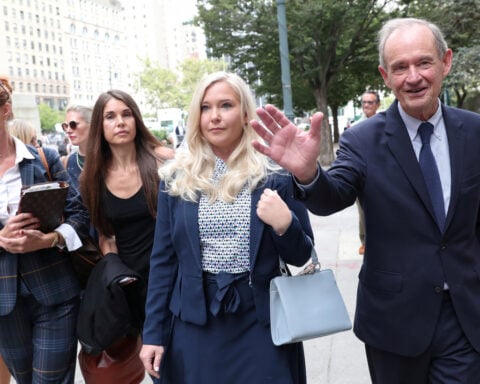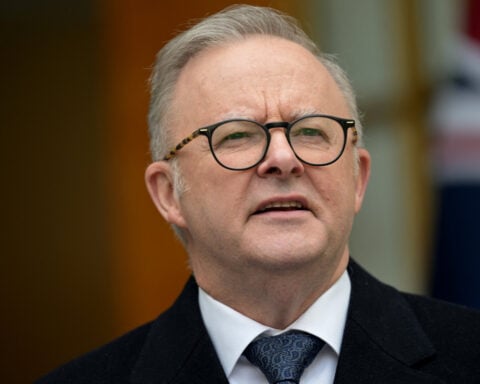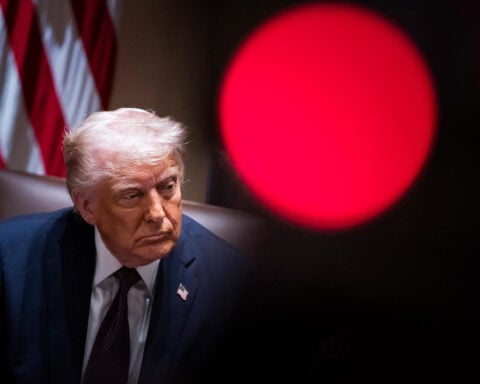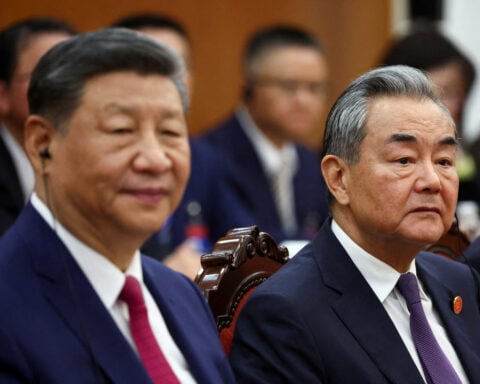By Jonathan Allen and Maria Tsvetkova
NEW YORK (Reuters) -U.S. President Donald Trump's administration on Monday described Columbia University's response to government demands to tighten rules on campus protests and other measures as a "promising first step" toward regaining federal grants and contracts.
Earlier this month, the Trump administration canceled grants and contracts awarded to Columbia worth about $400 million, saying pro-Palestinian student protests on campus had caused an atmosphere of antisemitic harassment.
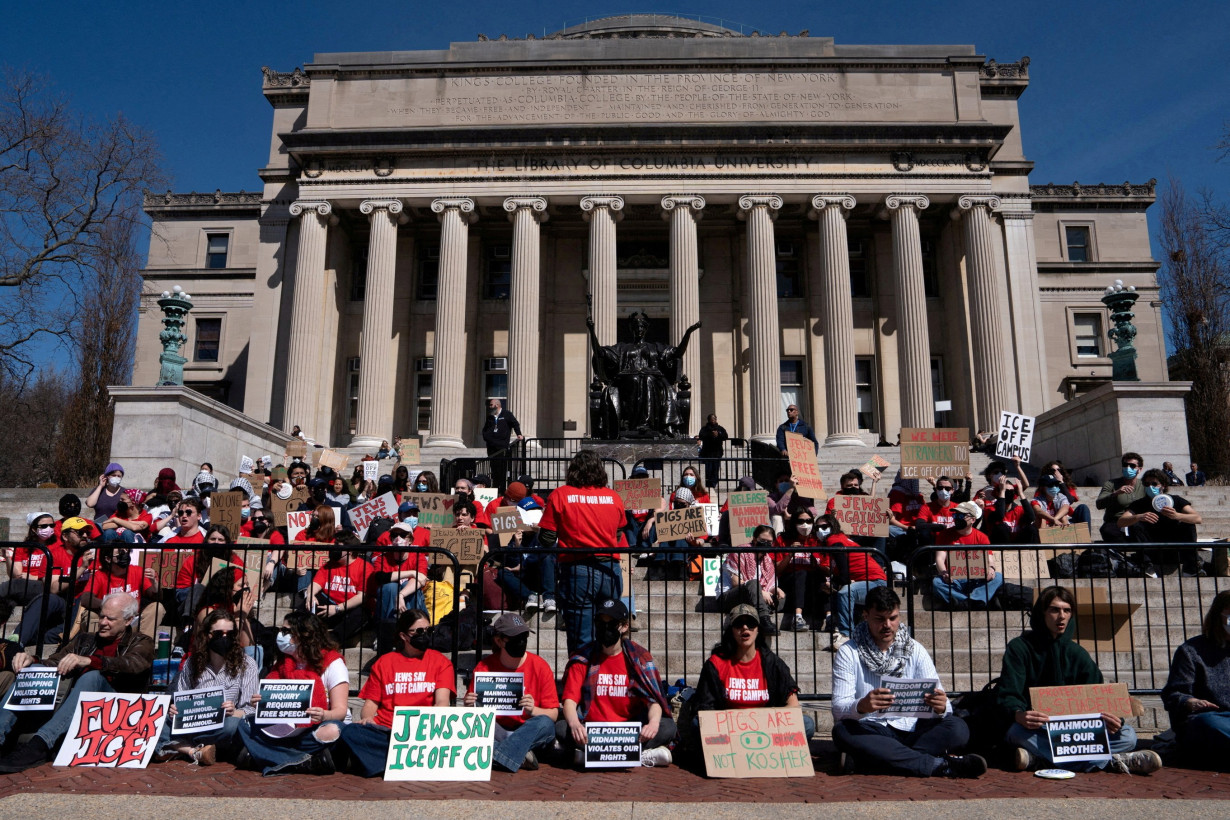
It followed up on March 20 with an extraordinary letter to Columbia containing nine demands regarding the private New York university's rules around campus protests and discipline.
The school's policies, which the Trump administration said allowed antisemitism to fester on campus, came to the fore during last year's pro-Palestinian protests over Israel's incursion into the Gaza enclave controlled by Hamas.
Columbia responded on Friday, saying it was in agreement with at least some of the demands, and that some of the changes had been underway long before the government's letter.
"The actions that Columbia have announced will have an immediate effect on combating antisemitism, holding those responsible for the harassment of Jewish students accountable, and reorienting Columbia to its academic mission," said a joint statement from the General Services Administration and the departments of education and health on Monday.
"Columbia's announcement is a positive first step in the university maintaining a financial relationship with the United States government."
The Trump administration has said Columbia could enter "formal negotiations" to continue to receiving federal funding if the school first met the demands laid out in the March 20 letter. Monday's statement did not say explicitly whether negotiations with Columbia would now begin.
In one of the actions outlined on Friday, Columbia said it was creating a new vice provost role to focus on programs in "regional studies," beginning with a review of Middle East-focused programs at departments across the university, as well as its international hubs in Tel Aviv and Amman. It did not say who would take up the new role.
The creation of the new role followed the Trump administration's demand that Columbia put one particular department - Middle Eastern, South Asian and African Studies - under academic receivership. Receivership generally entails taking control away from the faculty.
Columbia also said it was changing its disciplinary process and seeking to expand intellectual diversity in its faculty hires, and that it had previously begun recruiting 36 officers with arrest powers to help with campus security.
Some students and faculty said they were shocked at what they viewed as the university's acquiescence, while legal and civil rights groups said the Trump administration was violating constitutional free speech and due-process rights with its actions.
"To have this administration any way involved in dictating the curriculum of a purportedly independent institution can and will have a chilling effect for all of higher education," said Demetri Kavadas, a graduate student at Columbia Climate School.
A spokesperson for Columbia did not respond to questions about its responses to the government demands.
The government has warned at least 60 other universities of similar action to that which it took against Columbia in a bid to curb what it alleges to be tolerance toward antisemitism on campus.
Columbia's agreement could set the tone for how other universities respond to any threat to cancel federal funding.
After the university's Friday response, Columbia's board of trustees said in a joint statement that it must engage with "the agencies that serve as our regulators on issues that matter both to them and to us," and that it has been focused on combating bias and harassment, including antisemitism.
"Where this work aligns with recommendations of others, we believe constructive dialogue makes sense," the statement said.
(Reporting by Jonathan Allen and Maria Tsvetkova; Editing by Frank McGurty; Editing by Rosalba O'Brien)

 Trump has begun another trade war. Here's a timeline of how we got here
Trump has begun another trade war. Here's a timeline of how we got here
 Canada's leader laments lost friendship with US in town that sheltered stranded Americans after 9/11
Canada's leader laments lost friendship with US in town that sheltered stranded Americans after 9/11
 Chinese EV giant BYD's fourth-quarter profit leaps 73%
Chinese EV giant BYD's fourth-quarter profit leaps 73%
 You're an American in another land? Prepare to talk about the why and how of Trump 2.0
You're an American in another land? Prepare to talk about the why and how of Trump 2.0
 Chalk talk: Star power, top teams and No. 5 seeds headline the women's March Madness Sweet 16
Chalk talk: Star power, top teams and No. 5 seeds headline the women's March Madness Sweet 16
 Purdue returns to Sweet 16 with 76-62 win over McNeese in March Madness
Purdue returns to Sweet 16 with 76-62 win over McNeese in March Madness
